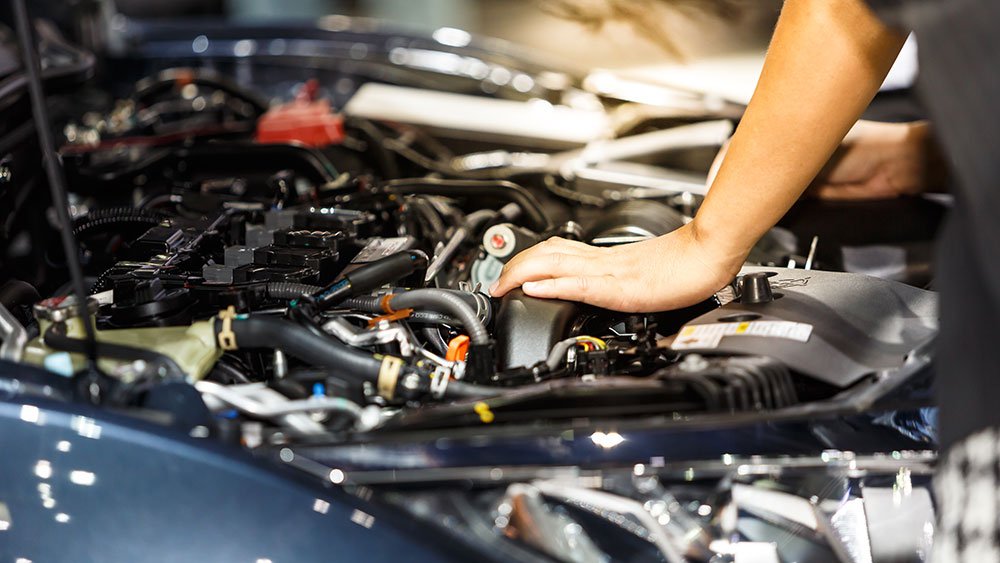Auto repairs are a trouble faced by all drivers. We will all experience unexpected breakdowns, but knowing what to do or at least what may be going on can ease the stress. A variety of auto problems can be responsible for a breakdown, but here are more of the most common auto troubles you may be facing. Check back with us frequently as we continue to add new articles to the Columbia SC Auto Pro Blog. Please enjoy Part 5 of our most recent series Basic Auto Problems Guide – By the Columbia SC Auto Repair Pro.
Engine Noises – Clicking Sounds
A clicking sound or a sort of tapping noise that seems to get louder when the engine revs up is usually caused by low oil pressure, too much valve lash, or worn out or damaged parts. Always check the oil to determine if the oil level is low first. If it is low, you should add enough oil to bring the level up to the full mark. If this is not the problem, next check the oil pressure. Your oil warning light coming on or a low gauge reading could be indicative of serious internal engine issues. This tells us the something is preventing a regular, normal oil pressure from reaching your upper valvetrain mechanisms. This may be caused by an oil pump that is too worn or damaged, but could also be the result of a clogged oil pump pickup screen or even a plugged oil filter. You may want to find a reputable mechanic or auto repair shop that can find and fix the problem for you right away.
Engine Noises – Knocking Sounds:
A loud knocking noise emitted from your engine is often caused by excessive wear or damage to the bearings. When your rod bearings are so worn or loose enough that they make that awful hammering noise, you\’re very close to a breakdown. When one of the bearings does fail, it will both seize up and then lock the engine or it will try to seize and wind up breaking a rod. Either of these things occurring will cause major damage to the engine and will then require you to have the engine rebuilt or even replaced. Bearing wear can be monitored. You would check them by dropping the oil pan and inspecting your rod and main bearings. If the bearings are in poor shape, replacing them bearings may help extend the engine’s life. But if an inspection shows bearings that are very badly damaged, the crankshaft may also need to be resurfaced. If this is the case, you may want to contact a professional auto repair shop to weigh the cost options and consider if having a complete engine overhaul may be best.
Engine Gasket Failure
Your engine contains many gaskets, any of which can degrade and fail with time and use. Some engines begin to have coolant leaks in the intake manifold gasket. The coolant leak in turn causes your engine to overheat. Rubber gaskets and seals also have their own issues. They have a tendency to harden and shrink with time. After a while they will usually start to leak, regardless of the care they have received. To stop the leaking, you will just have to replace your old gaskets or seals. A head gasket failure is an even worse problem. Replacing a head gasket can be quite costly, but sometimes is unavoidable.
In many cases, your head gasket will last throughout the life of your engine, but sometimes others will begin to leak coolant or compression, resulting in the engine overheating. In some cases a leaking head gasket can be fixed, but it is always just buying time. Adding a cooling system sealer to the radiator may temporarily help the problem, but you can never be sure how long the sealer will keep holding. The only true fix is to have a good mechanic or auto repair shop replace the head gasket.

